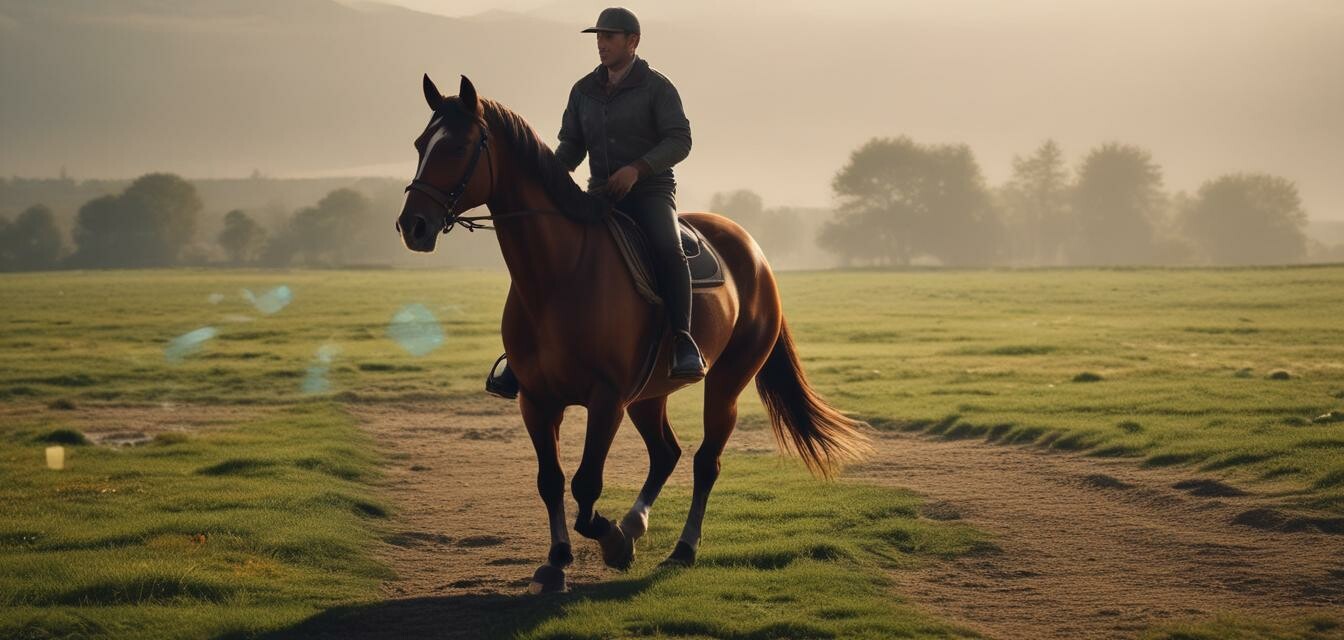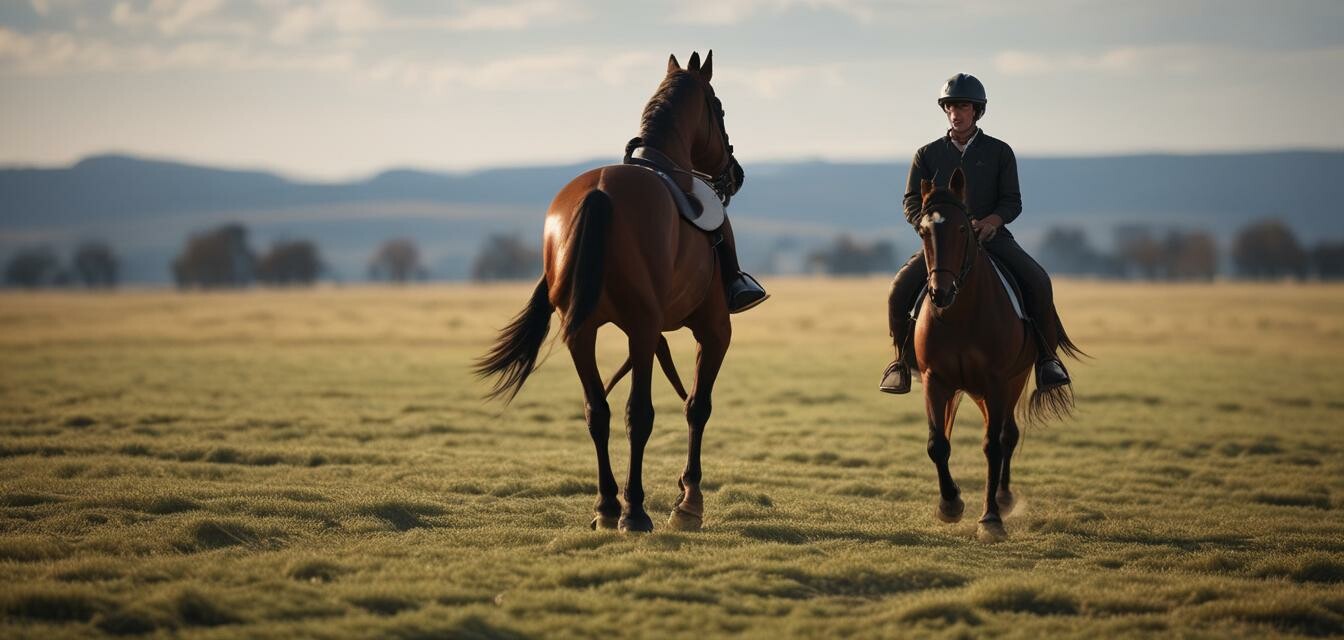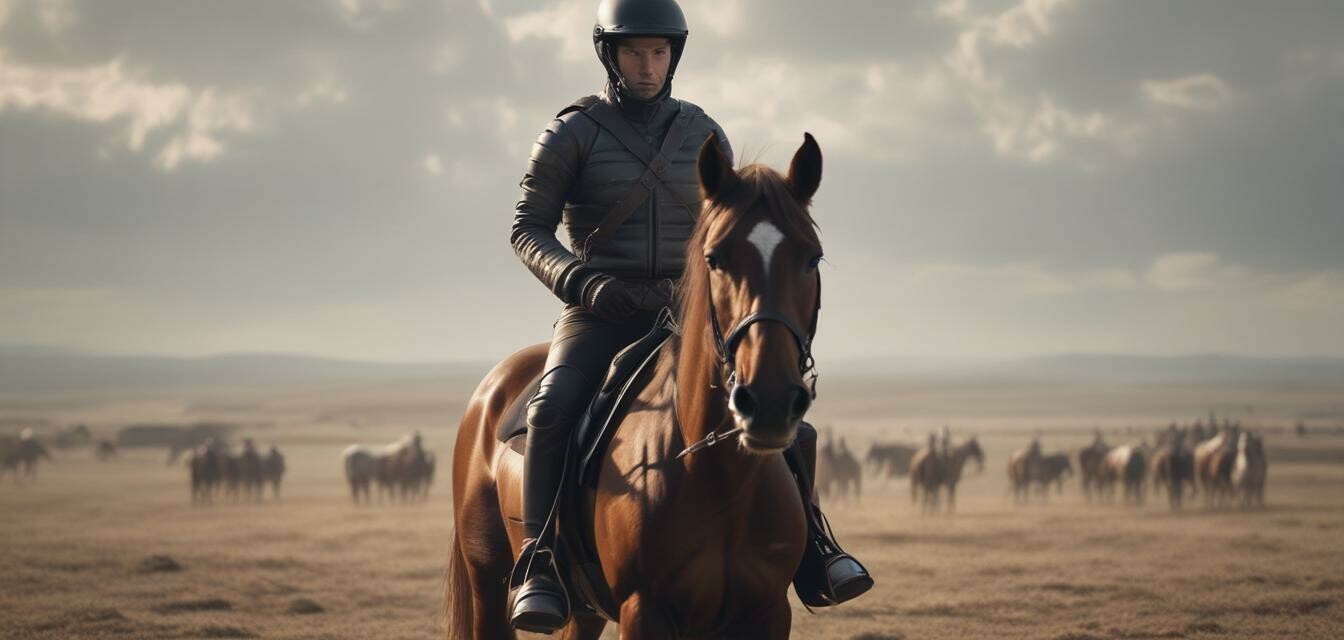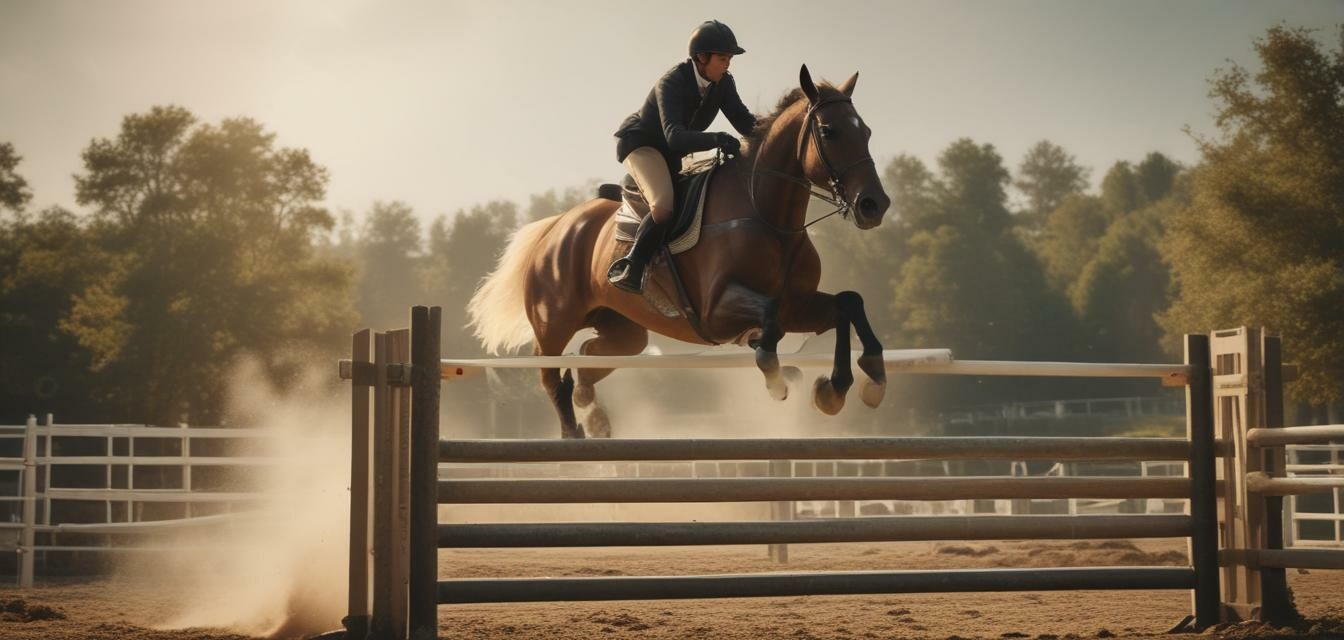
Horse Training and Behavior
Insights and techniques on training horses effectively and understanding horse behavior to improve communication and performance.
Key Takeaways
- Understanding horse behavior is crucial for effective training and building trust.
- Positive reinforcement training methods are recommended for optimal results.
- Consistency, patience, and clear communication are essential for successful horse training.
Understanding Horse Behavior
Horses are social animals that thrive on routine and clear communication. Understanding their behavior is vital for building trust and developing a strong bond between the horse and the rider.
| Horse Behavior | Description |
|---|---|
| Body Language | Horses communicate through body language, including ear position, facial expressions, and tail swishing. |
| Vocal Cues | Horses respond to vocal cues, such as tone, pitch, and volume, to understand commands and intentions. |
| Social Hierarchy | Horses establish a social hierarchy, with dominant and submissive roles, which affects their behavior and interaction. |
Effective Horse Training Techniques
Positive reinforcement training methods are recommended for optimal results and a strong, trusting relationship between the horse and the rider.

- Clicker Training: Uses a distinct sound to associate with desired behavior and rewards.
- Target Training: Teaches horses to touch a specific object, such as a ball or cone, to receive rewards.
- Desensitization and Counterconditioning: Helps horses overcome fears and anxieties through gradual exposure and positive reinforcement.
Building Trust and Communication
Consistency, patience, and clear communication are essential for successful horse training and building trust.
| Training Tips | Description |
|---|---|
| Establish a Routine | Develop a consistent daily routine to provide a sense of security and stability for the horse. |
| Use Clear Communication | Use vocal cues, body language, and clear instructions to avoid confusion and build trust. |
| Be Patient | Allow the horse time to process and understand new information, and avoid frustration and punishment. |
Common Challenges and Solutions
Every horse is unique, and challenges may arise during training. Being prepared and knowing how to address common issues can help you overcome obstacles and achieve success.

- Fear and Anxiety: Gradually expose the horse to the feared object or situation, while providing positive reinforcement and support.
- Lack of Focus: Use clear communication, consistent rewards, and engaging exercises to maintain the horse's attention and interest.
- Resistance to Training: Identify the underlying cause, adjust training methods, and provide clear, consistent communication to overcome resistance.
Conclusion
Effective horse training and understanding horse behavior are crucial for building trust, improving communication, and achieving optimal performance. By using positive reinforcement techniques, being patient and consistent, and addressing common challenges, you can develop a strong, successful partnership with your horse.
Benefits of Effective Horse Training
- Improved communication and trust between the horse and rider.
- Enhanced performance and achievement of goals.
- Stronger bond and partnership between the horse and rider.
Challenges of Horse Training
- Persistence and patience are required to overcome obstacles and achieve success.
- Understanding horse behavior and body language can be complex and require dedication.
- Consistency and clear communication are essential to avoid confusion and frustration.
For more information on horse training and behavior, explore our horse care products and horse tack sections, which offer a range of tools and resources to support your horse's health and well-being.

Remember to always prioritize your horse's safety and comfort when training and riding. Invest in high-quality riding apparel and riding boots to ensure a safe and enjoyable experience for both you and your horse.

Finally, don't forget to invest in a high-quality saddle that fits both you and your horse comfortably, providing optimal support and comfort during training and riding.









